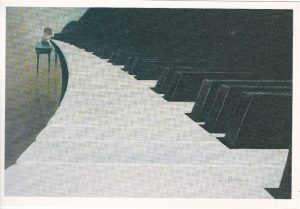Brain Development

In music study generally but even more so in piano study we are trying to coordinate four different kinds of memory: visual, aural, tactile/ kinesthetic and verbal/analytical, Piano study requires an integration of massive amounts of information. Pianists must keep time(metronomic pulse), follow pitch with specific intervals, form chords, maintain posture, all while right and left hands are operating independently. Sightreading requires an even more extreme integration of visual, aural and kinesthetic skills. A pianist must convert a visual image of multiple printed notes into correct sounds in a fraction of a second. A pianist “hears” the score before playing it.
In order to achieve this a pianist has to process large amounts of information for quick decision making. Developing these skills improves planning skills, language development, and boosts memory retention. This in turn heightens discipline, self esteem, multitasking, increases an academic mindset and improves creative problem solving regarding open-ended problems. By doing so a marked improvement in a child’s social behavior, spontaneity, and independence can be achieved. And there is a corresponding decrease in depression, fatigue and anxiety.
 In the 1960’s, the United States government sponsored research into the value of making piano study a compulsory subject for all public school children. The primary purpose was to see if children did better academically after a course of piano study. The conclusion was that piano study should be a core subject just for the brain development benefits alone. These studies were shelved in the Library of Congress and they were never acted on in the United States.
In the 1960’s, the United States government sponsored research into the value of making piano study a compulsory subject for all public school children. The primary purpose was to see if children did better academically after a course of piano study. The conclusion was that piano study should be a core subject just for the brain development benefits alone. These studies were shelved in the Library of Congress and they were never acted on in the United States.
China, however did actually implement piano study as a compulsory subject for all children. In China every family, no matter how rural their setting has a piano in the kitchen with a TV above it. Every morning young children are expected to tune in to the daily piano lesson broadcast over television. After the lesson they practice for a half hour and then they go to school.